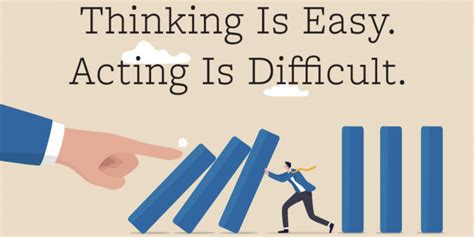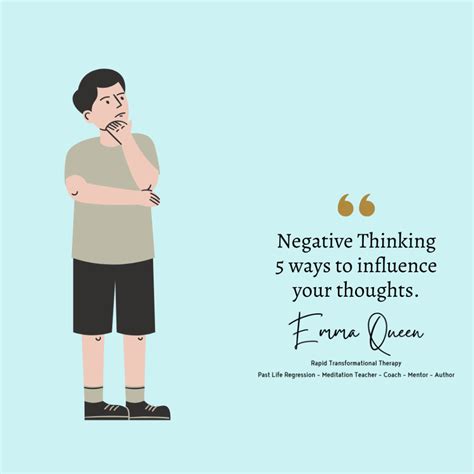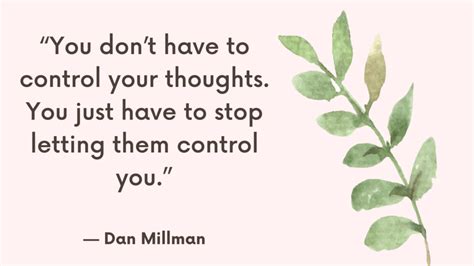Men’s Mental Health Month is a crucial time to focus on the mental well-being of older men, a group often overlooked when it comes to mental health discussions. As men age, they may face unique challenges such as isolation, loss of independence, and health issues that can significantly impact their mental health. This article aims to shed light on these challenges, offer strategies for maintaining mental well-being in later years, and provide valuable resources to support elderly men. By raising awareness and reducing stigma, we can encourage open conversations, provide essential support, and improve the quality of life for older men during this important month and beyond.
ujocis.net invites you to explore this topic thoroughly.
1. Importance of Men’s Mental Health Month: Raising Awareness and Reducing Stigma
Men’s Mental Health Month serves as an essential opportunity to spotlight the unique mental health challenges faced by men, particularly in their later years. This month is dedicated to raising awareness and breaking down the stigma that often surrounds mental health issues in men. Historically, men have been less likely to seek help for mental health concerns due to societal pressures and expectations to appear strong and self-reliant. This reluctance can be even more pronounced in older men, who may feel isolated or disconnected as they age. By focusing on Men’s Mental Health Month, we can encourage a shift in perception, promote open discussions, and emphasize the importance of mental well-being for elderly men. Addressing these issues head-on can lead to better mental health outcomes, reducing the risk of depression, anxiety, and other mental health conditions that often go unrecognized and untreated in this population.

2. Common Mental Health Challenges Faced by Older Men
As men age, they encounter a range of mental health challenges that are often compounded by physical health issues, social changes, and the loss of loved ones. One common challenge is depression, which can be triggered by retirement, diminished social networks, or a decline in physical health. Unlike younger individuals, older men may not recognize the symptoms of depression, or they might attribute them to the natural aging process, leading to underdiagnosis and untreated conditions.
Another significant issue is anxiety, which can stem from fears about declining health, financial instability, or the loss of independence. This anxiety can manifest in various ways, including excessive worrying, restlessness, and even physical symptoms like headaches or chest pain.
Cognitive decline, including mild cognitive impairment and dementia, is also a critical concern. While these conditions primarily affect memory and cognitive function, they often bring about emotional and psychological difficulties, such as frustration, confusion, and a sense of helplessness.
Additionally, older men may struggle with feelings of loneliness and isolation, particularly if they live alone or have outlived many of their friends and family members. This isolation can exacerbate mental health issues, creating a cycle of worsening emotional well-being. Understanding these challenges is the first step in providing effective support and care for elderly men.

3. Early Warning Signs and Symptoms to Watch For
Recognizing the early warning signs and symptoms of mental health issues in older men is crucial for timely intervention and support. Depression often presents with persistent sadness, a loss of interest in activities that were once enjoyable, and changes in appetite or sleep patterns. However, in older men, these symptoms might also appear as irritability, fatigue, or a general sense of apathy. It’s important to pay attention to subtle shifts in mood or behavior, as these could be indicators of underlying depression.
Anxiety in elderly men can manifest as excessive worry about health, finances, or daily activities. Physical symptoms like trembling, sweating, or an increased heart rate, especially when there’s no apparent cause, may also signal anxiety.
Cognitive decline is another area to monitor, with early signs including frequent forgetfulness, difficulty concentrating, and trouble following conversations or completing familiar tasks. While occasional lapses in memory are normal with aging, consistent patterns of confusion or disorientation warrant further investigation.
Isolation and withdrawal from social activities can also be red flags. If an older man begins to avoid family gatherings, stops participating in hobbies, or isolates himself from friends, it may indicate deeper emotional or psychological distress that needs attention.

4. Effective Mental Health Strategies and Practices for Elderly Men
Supporting the mental health of elderly men requires a combination of practical strategies and practices tailored to their unique needs. One effective approach is encouraging regular physical activity. Exercise has been shown to reduce symptoms of depression and anxiety by boosting endorphins and providing a sense of accomplishment. Even light activities like walking or gardening can have significant mental health benefits.
Maintaining a healthy diet is also crucial. A balanced diet rich in fruits, vegetables, and omega-3 fatty acids can improve mood and cognitive function, while reducing the risk of mental health issues. Proper hydration and limiting alcohol intake are equally important, as dehydration and alcohol can negatively impact mood and cognition.
Cognitive engagement through activities like reading, puzzles, or learning new skills can help keep the mind sharp and reduce the risk of cognitive decline. Encouraging participation in social activities, whether through community groups, clubs, or volunteer work, can combat loneliness and promote a sense of purpose.
Mindfulness practices, such as meditation or deep breathing exercises, can help manage stress and anxiety. These techniques are accessible and can be easily incorporated into daily routines.
Lastly, regular check-ins with healthcare professionals for mental health screenings and open discussions about emotional well-being are vital in ensuring early detection and appropriate treatment of any issues.
5. The Role of Social Engagement in Supporting Mental Health
Social engagement plays a pivotal role in supporting the mental health of elderly men, offering both emotional and psychological benefits. Staying socially connected helps reduce feelings of loneliness and isolation, which are common among older men, especially those who live alone or have experienced the loss of close friends or a spouse. Regular social interaction provides a sense of belonging and purpose, which are essential for maintaining mental well-being.
Engaging in group activities, whether it’s participating in community events, joining clubs, or volunteering, allows elderly men to build and maintain relationships, fostering a supportive network. These connections can be a source of comfort and encouragement, particularly during challenging times. Social activities also provide opportunities for cognitive stimulation, as conversations and interactions help keep the mind active and engaged.
In addition to organized group activities, maintaining close ties with family and friends is equally important. Regular visits, phone calls, or even virtual meetings can help older men feel valued and connected. Encouraging older men to stay involved in their communities, whether through hobbies, religious organizations, or local initiatives, can significantly improve their mental health.
Social engagement not only enhances emotional well-being but also contributes to overall life satisfaction, helping elderly men lead happier, healthier lives in their later years.
6. Professional Support: Therapists, Counselors, and Support Groups
Professional support is a critical component of mental health care for elderly men, providing access to specialized expertise and structured guidance. Therapists and counselors are trained to address the unique challenges faced by older adults, offering personalized treatment plans that can include talk therapy, cognitive-behavioral therapy (CBT), and other evidence-based approaches. These professionals help elderly men navigate issues like depression, anxiety, grief, and the emotional impact of physical health changes, empowering them to manage their mental health more effectively.
Support groups also play an essential role, providing a safe space for older men to share their experiences and connect with others facing similar challenges. These groups can reduce feelings of isolation and foster a sense of community, helping participants realize they are not alone in their struggles. Peer support is powerful, often leading to lasting friendships and a network of encouragement.
For some, group therapy, which combines the benefits of professional guidance with the support of peers, may be particularly effective. It allows participants to explore their feelings in a structured environment while receiving feedback and insights from both the therapist and fellow group members.
Accessing professional support early on can prevent the escalation of mental health issues, ensuring elderly men receive the care and attention they need to maintain their well-being in later years.
7. Personal Stories and Testimonials: Real-Life Experiences
Personal stories and testimonials provide valuable insights into the real-life experiences of elderly men navigating mental health challenges. Hearing directly from those who have faced similar struggles can be both inspiring and reassuring. For instance, John, a 72-year-old retired teacher, shared how joining a local support group helped him overcome feelings of isolation after his wife passed away. Through the group, he found camaraderie and understanding, which significantly improved his mental well-being.
Similarly, George, a 68-year-old veteran, found that engaging in regular therapy sessions allowed him to manage his anxiety and cope with the stresses of aging. His story highlights how professional support can provide practical tools and emotional support tailored to individual needs.
These personal accounts underscore the importance of seeking help and staying connected. They reveal how others have successfully navigated their mental health journeys, offering hope and guidance to those facing similar challenges. By sharing these experiences, we can foster a greater understanding of mental health issues and encourage more elderly men to seek the support they need.
8. Resources and Tools: Helplines, Websites, and Community Programs
Accessing the right resources and tools is essential for supporting the mental health of elderly men. Several helplines and websites offer immediate assistance and information. National helplines, such as the Suicide & Crisis Lifeline (988 in the U.S.), provide 24/7 support for those in distress. The National Alliance on Mental Illness (NAMI) also offers a helpline and resources tailored to mental health issues, including information on local support services.
Websites like Mental Health America (MHA) and the American Foundation for Suicide Prevention (AFSP) provide valuable resources on mental health conditions, coping strategies, and finding professional help. These sites often include directories for locating therapists, counselors, and support groups.
Community programs can also be instrumental in supporting elderly men. Local senior centers and community health organizations often host workshops, support groups, and social activities designed to promote mental well-being. Many communities have outreach programs specifically geared towards elderly individuals, offering counseling, companionship, and activities that foster social engagement.
Additionally, online platforms like the Elderly Mental Health Network provide forums and resources for connecting with others and accessing mental health services. Utilizing these resources can significantly enhance support for elderly men, ensuring they receive the help they need to maintain their mental health and well-being.
9. Encouraging Open Conversations: How Family and Friends Can Help
Encouraging open conversations about mental health is crucial for supporting elderly men and can significantly impact their well-being. Family and friends play a vital role in creating an environment where these discussions are welcomed and normalized. Approaching conversations with empathy and understanding helps reduce stigma and encourages elderly men to share their feelings and concerns.
It’s important to initiate these conversations gently and without judgment, allowing space for the individual to express themselves at their own pace. Listening actively and validating their experiences shows that their feelings are taken seriously, fostering trust and openness.
Offering practical support, such as helping to find mental health resources, accompanying them to appointments, or simply spending quality time together, demonstrates a commitment to their well-being. Regular check-ins, whether through phone calls, visits, or virtual meetings, help maintain connection and provide ongoing emotional support.
Family and friends can also educate themselves about common mental health issues faced by older men, enabling them to offer informed support and recognize warning signs. By fostering an open dialogue and being actively involved in their mental health journey, loved ones can make a meaningful difference in the lives of elderly men.
Men’s Mental Health Month offers a vital opportunity to focus on the mental well-being of elderly men, addressing the unique challenges they face. By raising awareness, reducing stigma, and promoting early intervention, we can support their mental health effectively. Utilizing strategies such as physical activity, social engagement, and professional support, combined with personal stories and available resources, empowers elderly men to lead fulfilling lives. Encouraging open conversations with family and friends further strengthens this support network, ensuring that mental health remains a priority and that every elderly man receives the care and understanding he deserves.
ujocis.net

